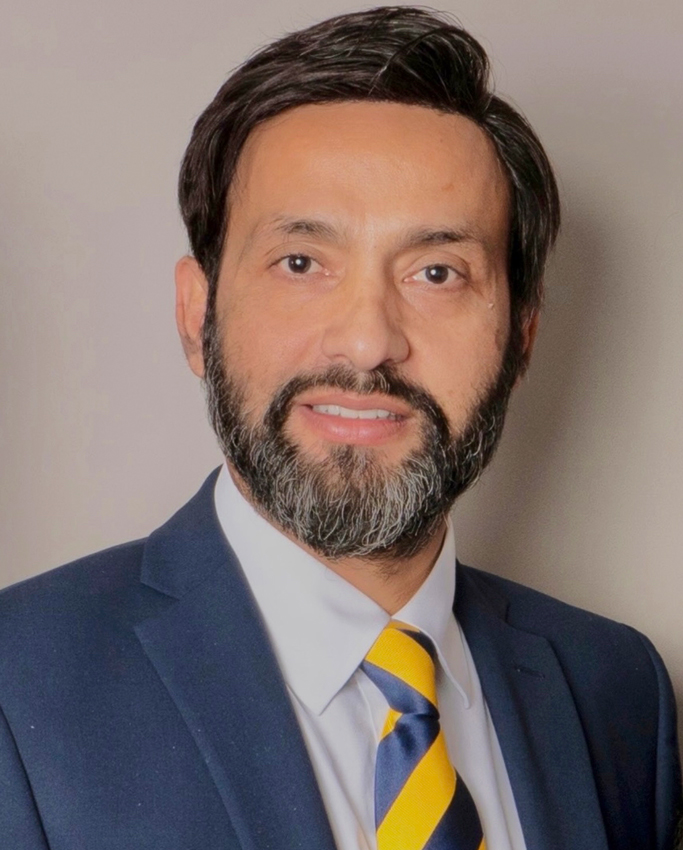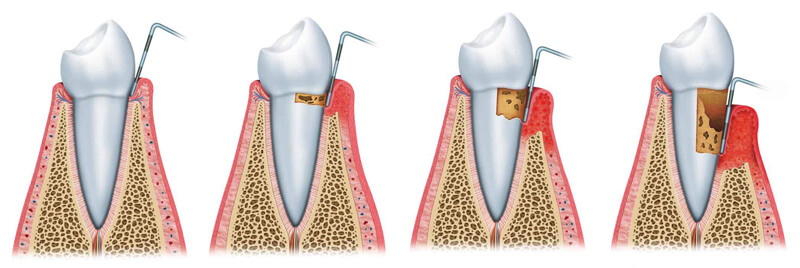Birmingham, Solihull, Bromsgrove, Worcester & West Midlands based Specialist Periodontist
Specialist Periodontist & Expert Periodontal Disease Services
Mr Karun Dewan is West Midlands (UK) based Registered Specialist Periodontist (Gums Expert) providing treatment for Gum Disease and Dental Implant treatment at Restore Dental.
 Mr Karun Dewan
Mr Karun Dewan
Karun Dewan, as well as being a co-founder of RESTORE, works as a Consultant in Restorative Dentistry at the Birmingham Dental Hospital. In addition, he is an Honorary Clinical Lecturer in Restorative at the University of Birmingham. In addition to specialising in Restorative Dentistry, he Specialises in Periodontics (Gum Disease), Prosthodontics and Endodontics.
After graduating with distinction from Manipal Academy, India, Karun worked in Oral and Maxillofacial Surgery whilst completing his American National Dental Boards. On returning to the U.K, he completed an MSc in Prosthetic Dentistry from the prestigious Eastman Dental Institute, University College London. He then completed his Consultant Training in Restorative Dentistry at the Birmingham Dental Hospital.
Karun has extensive experience in the treating patients with complex periodontal problems both from the medical side as well as cosmetic purposes. His Higher Specialist training via the Royal College of Surgeons of England in Periodontics also included multidisciplinary restorative specialities that places him at Consultant level, the highest training in the field of dentistry in the U.K. Karun carried out clinical research in the field of Periodontics looking at Association between Systemic Lupus Erythematosus and Periodontitis. He was part of the wide Research Team collaborating with University of Birmingham and Queen Elizabeth Hospital.
Karun have extensive experience and expertise in Periodontal disease management including Periodontal disease affecting Dental implants (Peri-implant mucositis & Peri-implantitis). He has special interest in management of receding gums (recession), crown lengthening procedures to improve and increase the length of teeth. His Restorative background provided him with stronger understanding, knowledge, experience and expertise in management missing teeth if some teeth are lost due to periodontal disease (gum disease).
Good clinical leadership, focusing on patient care and achieving clinical excellence are all priorities for Karun. He aspires to improve confidence and aesthetics for patients who are referred to RESTORE. He believes strongly that every patient should be able to make an informed decision, knowing his or her options and limitations of treatment, before embarking on treatment.
Karun has published and lectured nationally and internationally and has refereed papers in several peer-reviewed journals. Karun teaches Undergraduate dental students at the School of Dentistry in Birmingham and is a Clinical Postgraduate Trainer for Speciality Trainees. Karun has won multiple awards throughout his career and was previous Chairperson of the Specialist Registrar Restorative group [SRRDG]. He is the current Chair of the Managed Clinical Network in Restorative Dentistry of the West Midlands region.
Karun is a member and examiner for the Royal College of Surgeons of England and is affiliated with the British Society of Restorative Dentistry, the British Society of Prosthodontics, the British Society of Endodontics, the British Society of Periodontology, Restorative Dentistry UK.
Dentists Click Here For Referrals
Periodontitis
Periodontitis is a common type of gum disease treated by periodontal specialists. It affects approximately 45% of the UK population. If left unchecked periodontitis can progress and if left untreated can lead to loss of supporting bone around the teeth, loosening of teeth and ultimately their loss.
Your dentist can refer you to a Periodontist for consultation, assessment, and treatment of Periodontitis with the aim of trying to save your teeth from needing extraction, if you are keen on keeping your own teeth for as long as possible.
The symptoms of Periodontal Disease (“gum disease”) or Periodontitis (previously called Chronic or Aggressive Periodontitis) include swollen, red or even bleeding gums, halitosis (bad breath), receding gums, loose teeth and gaps caused by the physical structures of the gums breaking down. Unfortunately, some of these symptoms actually occur painlessly which is why so many patients allow the disease to progress without investigation or treatment.
If your gums are bleeding, teeth feel wobbly or loose, halitosis / bad breath, gums and/or bone are shrinking, shrinking or receding gums and gaps forming between your teeth or have noticed your teeth moving position gradually or suddenly, then you should urgently seek a Specialist Periodontist opinion and treatment.
Whether your front or back teeth, upper or lower teeth are affected, it important not to delay having a consultation and assessment so suitable treatment options can be presented to you.
Stages of Periodontal (Gum) Disease

Scientific evidence has linked severe periodontitis to an increased risk of stroke, heart attacks, atherosclerosis and impaired mental capacity in the elderly. There is also a very clear relationship between diabetes control and periodontitis, it’s severity, control and stability. Poor diabetic control can lead to worsening of periodontal disease. It is therefore important to consider the wider impacts of periodontitis on patients’ general health and effects on their quality of life. It is essential that patients showing symptoms, are assessed and appropriately referred to a Specialist Periodontist as soon as possible.
A Specialist Periodontist can diagnose and treat gum disease to higher level with an in-depth consideration of contributing risk factors. Their knowledge and skill set in this field is more advanced than general dentists and hygienists. They undertake structured and rigorous training to achieve recognition by the General Dental Council and Royal College of Surgeons as accredited Specialists. There are only a few quality-assured university-based training institutions in the U.K. offering this high-level training.
To book your Periodontal consultation or for further information or queries please call 0121 445 3697.
For more patient information visit the these websites:
British Society of Periodontology and Implant Dentistry (BSP) click here
European Federation of Periodontology (EFP) click here.
The Importance of Gum Health
Watch this video produced by the European Federation of Periodontology (EFP) which shows how real patients feel about their gum health and gum disease. It highilghts the benefits of gaining control and stability of their periodontal condition and the effects on their overall health and well-being are clear.
Frequently Asked Questions
Periodontics is the branch of dentistry concerned with the supporting structures of the teeth, and diseases and conditions that affect them.
Periodontal disease broadly includes gingivitis and periodontitis.
Dental plaque is the creamy-white sticky substance that develops around your teeth and gum line. If plaque is not adequately removed it will hard on to become a harder substance known as calculus or tartar. Toxins are released from plaque and calculus, which leads to inflammation of the gums and sometimes the bone, which holds the teeth.
Gingivitis is inflammation of the gums in response to the bacteria in dental plaque. This is usually a reversible condition with effective advice and treatment. Although not always the case, long-standing gingivitis can progress into periodontitis.
Symptoms may include redness, puffy and swollen gums. Gums will often bleeding during tooth brushing or at other times.
Periodontitis is inflammation of the supporting tissues of the teeth including the gums and progressive destruction of the bone surrounding the teeth. Left untreated, periodontitis can lead to loosening and subsequent loss of teeth.
Symptoms may include red or swollen gums, bleeding when brushing or at other times, receding gums (roots become exposed and teeth begin to look longer), bad breath, aching itchy sore or tender gums. The teeth may have changed position gradually over time as they become loose, drift or protrude. Gaps may develop between the teeth as the gum recedes.
Plaque is the main risk factor for periodontal disease but other risk factors are also involved. Smoking has an important role in the progression and severity of periodontitis. It also has a detrimental effect on healing following treatment. Periodontitis can be passed on genetically, especially aggressive forms of disease. Patients with poorly/uncontrolled diabetes tend to have more severe periodontal disease.
Stress, Pregnancy, Puberty and certain medications are also risk factors for periodontal disease.
Treatment generally depends on the type of periodontal disease and how far the condition has progressed. Treatment is broadly divided into non-surgical treatment and surgical treatment.
Often, the early stages of periodontal disease are best treated with non-surgical treatment. One of first steps usually involves thorough oral hygiene instructions to enable you to take care of your teeth and gums effectively to give any treatment provided the best chance of success. The teeth will require scaling to remove plaque and tartar both above and beneath the gum line.
In periodontitis, more detailed procedure called Roots Surface Debridement is required to clean away tartar on root surfaces in deep areas below the gum line, under local anaesthetic. This allows the gum, which has come away from the tooth due to the disease process, to heal and reattach to the tooth. Following treatment you will be reviewed 6 to 8 weeks later (depending on your case) to assess your response to treatment and discuss any further treatment needs if necessary.
Severe cases of periodontal disease may require additional surgical treatment after non-surgical treatment phase. Non-surgical treatment is often important prior to surgical treatment to help improve the quality of the gum tissue and limit surgical treatment only to where it is required.
We welcome self-referrals as well as referrals from dentists from Birmingham, Worcestershire and entire West Midlands region. Your dentist is able to offer you general advice and basic periodontal treatment, however you may require more advanced assessment and treatment which can be assessed by a practitioner who has been highly trained in the field of periodontics.
You will receive a detailed periodontal examination and in-depth discussion of your condition. You should experience little, if any, discomfort during the examination. X-rays will be taken as required to evaluate the extent and distribution of bone lost around your teeth. Following appropriate investigations and once your diagnosis has been explained to you, you will be presented with all suitable treatment information and options for your consideration including a treatment plan with fees involved.
What other periodontal treatments can be provided?
Other conditions of the gums often require special treatments/surgery.
We also offer the following periodontal treatments:
- Crown lengthening
- Periodontal plastic surgery
- Connective tissue grafts
- Free gingival grafts
- Gingival (gum) recontouring/gingivectomy
- Frenectomy
- Periodontal regeneration (including use of Emdogain®)
- Bone grafting (rebuilding bone)
- Ridge augmentation
Patients seek our Periodontist’s help for the following:
- Gum Disease – Gingivitis or Periodontitis
- Bleeding gums
- Bone loss around teeth
- Receding gums
- Loose, wobbly or mobile Teeth
- Bad Breath and bad tastes
- Bone loss and infection around Dental Implants – Peri-implant Disease / Peri-implantitis
Specialist Referrals
For our Dentist Partners:
If you would like to refer your patient to RESTORE for any aspect of PERIODONTAL care, with our REGISTERED SPECIALIST PERIODONTIST, you can be assured that your patient will be in very experienced hands. We provide specialist treatment and offer an enhanced level of care, attention and expertise.
Once treatment is successfully completed, the patient will be returned to you for continued care at your practice.
Watch our Video for Referring Dentists
If you are a patient and would like to book your consultation please call 0121 445 3697.
Alternatively, complete our enquiry form and we will be in touch.
